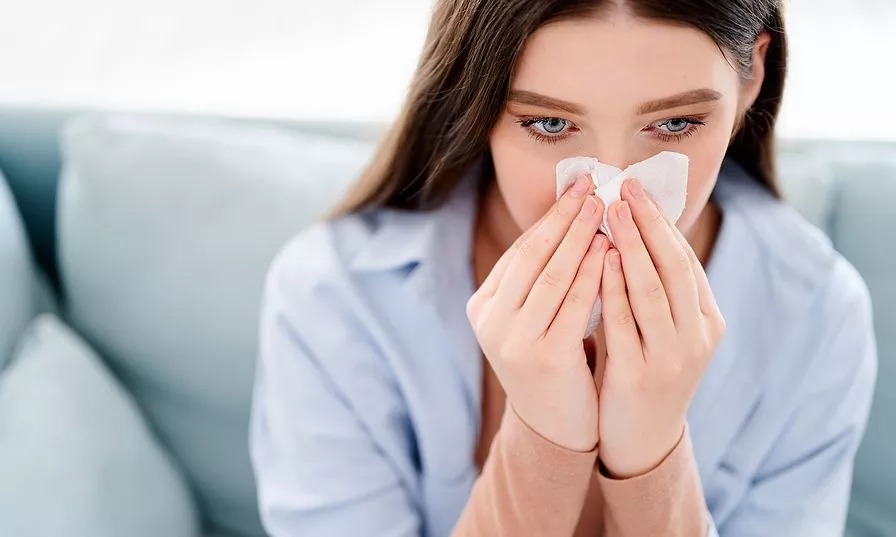A study by the University of Cyprus School of Medicine reveals that one in five Cypriots suffers from allergic rhinitis, commonly known as hay fever.
Olive, grass and corn pollen are the most frequent triggers of seasonal allergies on the island, with ragweed pollen and the fungus Alternaria also playing a significant role.
The research, led by allergist Dr Konstantinos Pitsios, surveyed a group of young Cypriots to “map the sensitisations to inhaled allergens in Cyprus” and compare allergy rates to the rest of Europe.
As spring approaches, many Cypriots are bracing for the onset of seasonal allergies, with symptoms peaking between mid-April and early July.
Pitsios told philenews that respiratory allergies often appear in childhood, but can also develop in adults.
“In most cases, respiratory allergies are hereditary and linked to food allergies or atopic dermatitis,” Pitsios explained, referring to a group of allergic conditions known as atopic diseases. Other allergies, he noted, are not hereditary and can be triggered by medications or insect stings.
The Cypriot spring allergy season kicks off in March with the flowering of grasses, intensifying in mid-April as olive trees bloom. The duration of the pollen season is influenced by winter weather conditions. For example, a rainy winter typically leads to a longer flowering and pollen season.
“Having olive, grass, corn or ragweed allergies doesn’t require exposure to these plants in your garden,” Pitsios clarified. “Pollen travels vast distances and is carried by air. Even in Nicosia city centre, a special pollen trap can detect corn pollen. It’s important to remember that pollen triggers respiratory allergies, so someone with allergic rhinitis doesn’t need to avoid olives or corn on the cob.”
House dust mites, another prevalent allergen in Cyprus, are microscopic insects found in all homes. While harmless to most, they can trigger severe allergic reactions, making it difficult for sufferers to spend time indoors.
“Allergic rhinitis, though not life-threatening, can significantly impact the quality of life, travel plans, and social and professional activities,” Pitsios cautioned. “Those with allergic rhinitis should seek proper treatment. Doctors typically prescribe medications like antihistamines and steroid sprays, ensuring correct usage. Untreated allergic rhinitis can worsen over time, potentially developing into asthma, a much more serious condition.”
While allergies are not preventable, Pitsios suggests a natural lifestyle, ideally close to nature, as the best approach for those with a hereditary predisposition.
For pollen allergies, he recommends minimising unnecessary travel during windy periods and avoiding early morning ventilation when pollen counts are highest.
Conversely, frequent house ventilation is beneficial for dust mite allergies, regardless of the time of day.
Pitsios also advises those with dust mite allergies to avoid dust-collecting fabrics like thick carpets, heavy curtains, and decorative cushions.
Regular vacuuming, wiping furniture with damp cloths, and sunning sheets are all effective control measures. “Dust mites cannot survive in sunlight,” he explained.
The study emphasises the importance of early exposure to nature. “Children who spend time outdoors, playing with other children, or visiting grandparents tend to develop a stronger immune system,” Pitsios said. “While some modern parents might prefer to keep their children in a sterile environment, this doesn’t offer any protection. Early exposure to microorganisms, even for those with a genetic predisposition to allergies, can lead to milder symptoms or prevent allergies altogether.”






